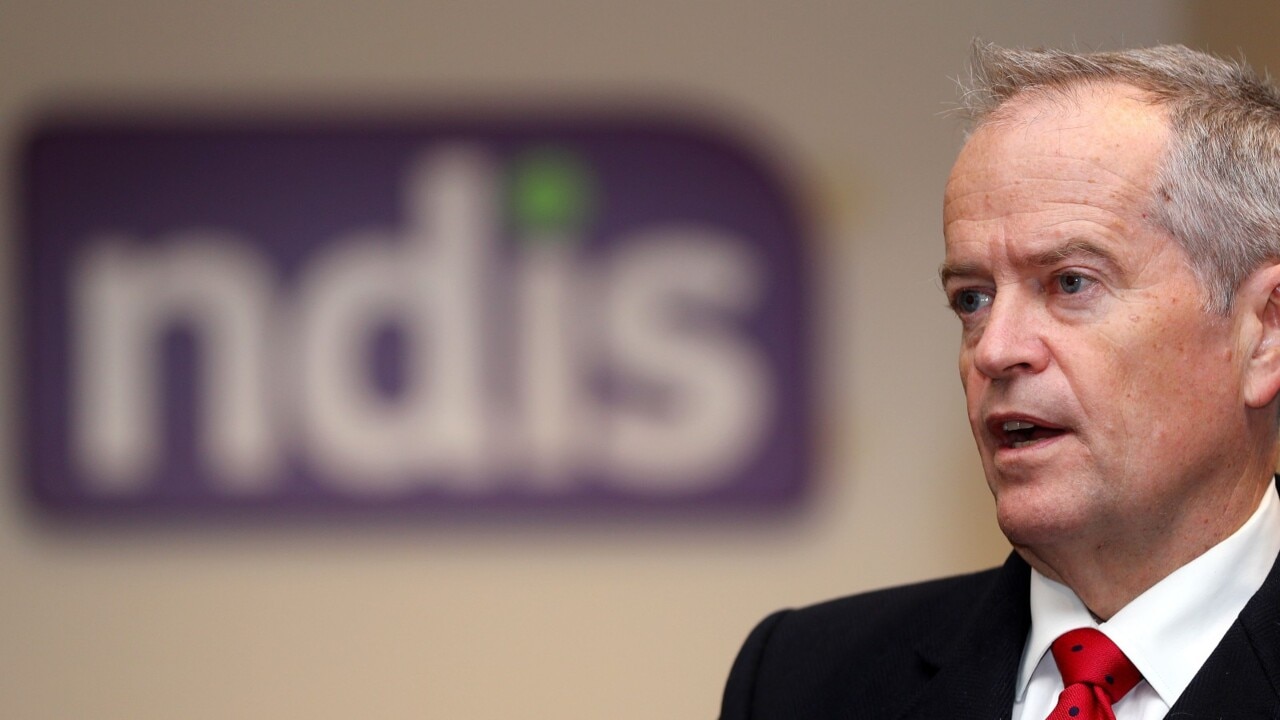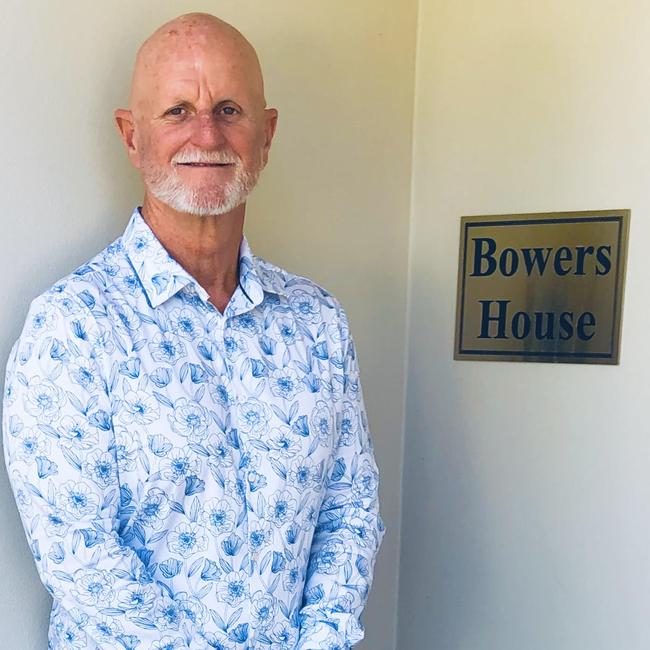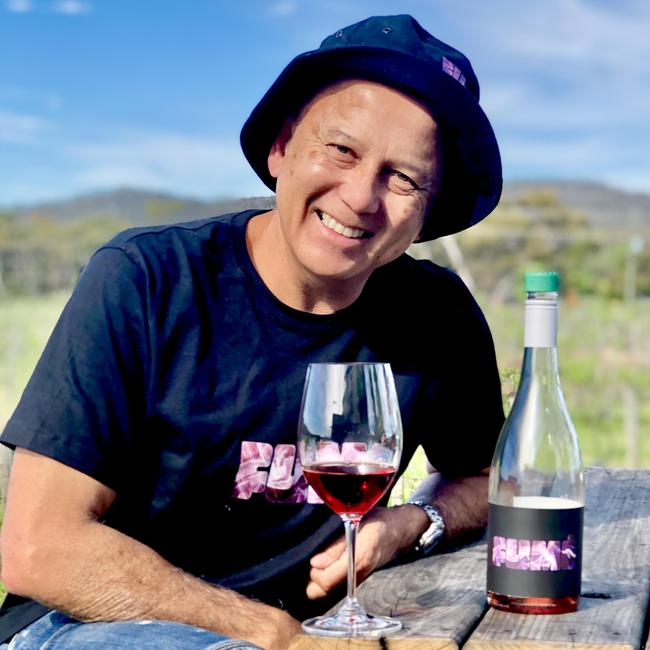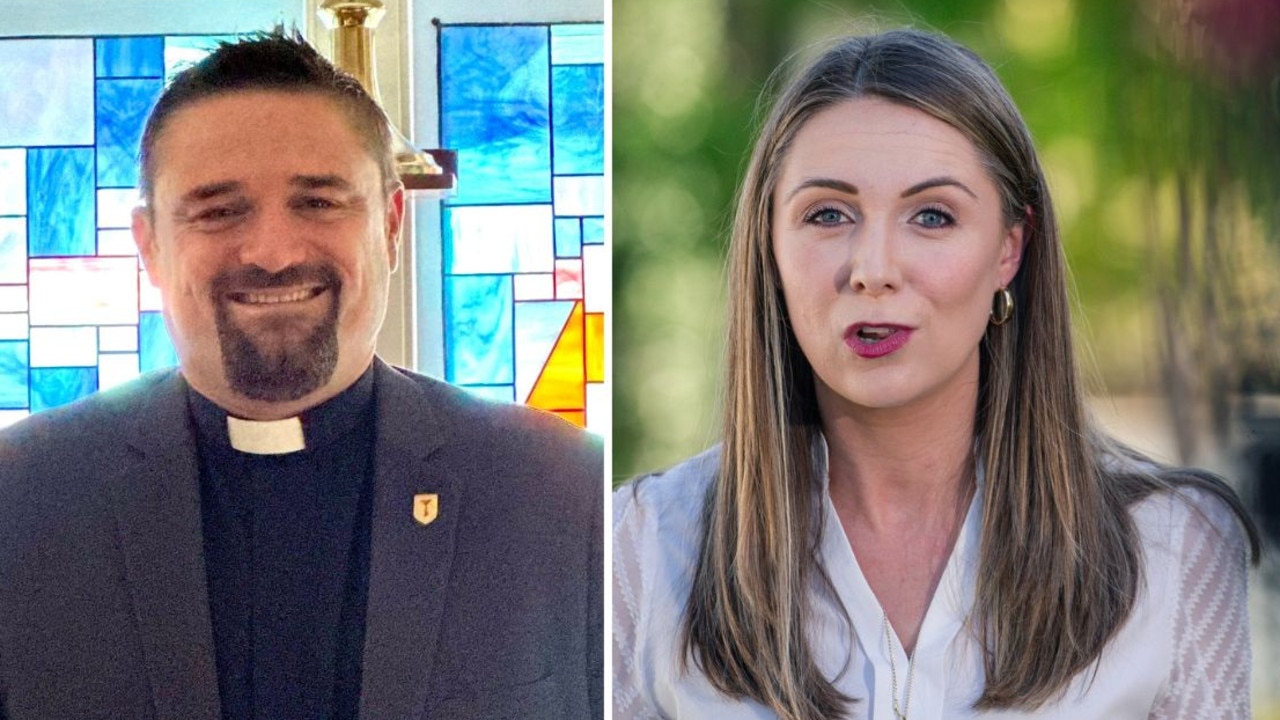Des Houghton: Technology easing the burden for disabled with high care needs
An Ipswich man will be the first person in Australia to trial a new hi-tech solution for the disabled, as many languish with high care needs. VOTE IN OUR POLL

CM Insight
Don't miss out on the headlines from CM Insight. Followed categories will be added to My News.
Karen Caddis was on top of the world preparing for her wedding to handsome Redbank Plains bus driver Russell Conyard when disaster struck.
“He proposed to me, and I said yes. Not long after, things changed forever,” she said.
Mr Conyard, 62, suffered a devastating stroke.
“He was so glad it happened when he wasn’t driving the bus.”
Canadian-born Mr Conyard had begun the long road to recovery when disaster struck again. In 2020 he suffered a second stroke that cut him down so mercilessly he can no longer feed himself, dress or bathe himself and cannot go to the toilet unaided.
He has some movement in one arm and some fingers and one leg but is one of a growing number of Australians who find themselves, as Ms Caddis says, in a living hell.
I visited them at Mr Conyard’s new home at Dredge Circle in Brassall, not far off the Warrego Highway at Ipswich.
From the outside it looks like any neat brick family home you will find in the ’burbs.
Inside it has wide, wide hallways and low benches and other features to assist in the care of the most severely disabled.
Younger men were rolling around in wheelchairs with missing limbs and missing memories.
Some of the residents in high-care homes were born badly broken. Others arrived in care after horrific accident traumas.
Mr Conyard’s room resembles a hospital ICU unit.
Ms Caddis and her daughter assist in Mr Conyard’s care.
The NDIS has just delivered a $35,000 motorised wheelchair that looks more like a sophisticated golf buggy. The toilet and bathroom have a large mechanical hoist.
The roof and ceilings of the home were strengthened with extra bracing for hoists, said David Beard, whose firm SDA Smart Homes provides specialist disability accommodation.
Even the walls were reinforced, Mr Beard said.
Mr Beard also runs the Disability Housing Centre and is working with two universities and a robotics expert to provide more tech-savvy solutions to assist the profoundly disabled and their carers.
Next week Mr Conyard will be the first person in Australia to trial a new hi-tech push-button bar he can use to call for emergency help, or ask for a snack, a drink or a cigarette or toilet break.
Mr Beard, 62, is pioneering other technology he hopes will improve the lives of the disabled.
An old boy of Wynnum North State High School, the former mine worker switched to property when he returned home to Brisbane at the age of 24 to get married.
“We didn’t plan to be a NDIS housing provider,” he said.
“We were busy doing our own projects when we were asked to come up with more innovative designs for housing for the disabled.
“We then became a housing provider. It took us a year to get compliance.
“We had to learn along the way. It was a bit like diving off a cliff and building a parachute on the way down.

“Now we have built 55 high-care homes in South East Queensland at Ipswich, Loganholme, Birkdale, Ellen Grove and Boondall.”
The residents include 80 quadriplegics. Many cannot speak and are classified as “non-verbals”.
The NDIS says there are 30,000 severely disabled Australians still desperately in need of high-care accommodation.
Mr Beard believes the disabled should be integrated into local communities.
He was disappointed when some developers planning new estates rejected his offers to build special homes.
The developers feared the stigma of having disabled people living in the same suburb would detract buyers.
Emma Hocking, the chief executive of SDA Smart Homes, has plans for 25 more homes for the disabled in Queensland and wants to extend the company’s reach to the Sunshine Coast, Townsville and Far North Queensland where the need was greatest. She is seeking investors.
Mr Beard points out that 554,971 Australians are now receiving support from the NDIS, according to its latest quarterly report. The figure jumped 23,137 in three months.
Mr Beard said the current housing and rental crisis had hit the disabled hard.
To the nation’s shame, there are still 3435 young disabled Australians parked in aged-care homes because there is nowhere to put them.
ALARMS TO HALT ASSAULTS
A Queensland company has developed rape alarms for use in homes where the disabled are often immobile and can’t escape or cry out for help.
Any extra weight on a bed or unusual vibrations triggers the alarm, said David Beard, a high-care accommodation provider.
Sophisticated sensors in walls, ceilings and beds cannot only detect sexual assaults but falls and wheelchair crashes.
They can also be set to alert carers and family members to seizures, fever, choking, bed wetting and respiratory problems.
Beard said he was appalled to learn that females with a disability were twice as likely to experience sexual violence than women without a disability. Disabled children were also vulnerable.
The advanced technology was being pioneered by Beard’s company, Ariel Care, with experts in robotics and engineering from the University of Queensland and Queensland University of Technology’s school of business.
Ariel Care is a joint venture between Beard and Mark Xavier, a former military man and “advanced automation” expert.
Xavier, a Brisbane Grammar old boy who graduated from Royal Military College, Duntroon, had a long career in the defence forces, including 15 years as an intelligence officer in the US and Asia.
Xavier says sexual assault was usually a taboo subject in the disability and aged care sector.
He said passive sensors that detect movement, weight, temperature and wetness could be introduced without intruding on a person’s privacy.
He said many disabled people with sound minds suffered greatly.
“They feel they are a burden on society and feel frustrated that they cannot take part in community life,” he said.
“Their quality of life is pretty average so we must do anything we can to help them. Anything we can do to give them even a small sense of freedom is worthwhile.”
Beard and Xavier say the next frontier will be the use of blinking eye movements by paralysed people to activate alarms and send messages.

FUN THROUGH ROSE-COLOURED GLASSES
Glen Robert and his partner Robert Richter from Bent Road Winery are urging travellers to the Granite Belt to wear pink during this weekend’s bacchanalian revelry.
It’s all to do with the release of a new rose aptly named Smokin’ Fume.
It was made from tempranillo grapes from NSW affected by bushfire smoke. Rather than see the wine poured down the drain, Robert, a biomedical scientist in a past life, decided to clean it up.
“We scienced the hell out of it,” he said,
With special fining agents including green pea protein and carbon he was able to remove much of the smoke taint to make an agreeable quaffer that is walking off the shelves at the firm’s new vineyard and cellar door at Gianini Lane, Ballandean.
There are wine tastings, barbecues, picnics and trivia sessions with entertainment from Stanthorpe folk duo, Nine Year Sisters.





